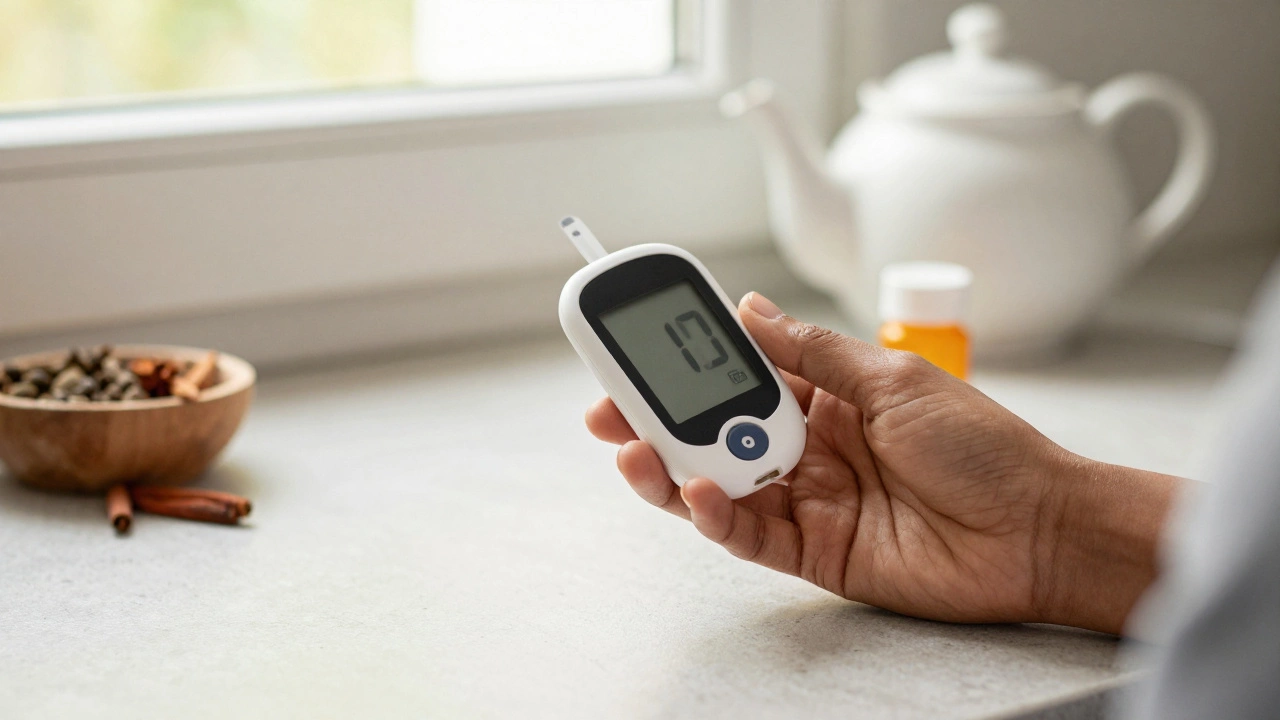Metformin isn't a weight loss drug, but many people with type 2 diabetes experience modest weight loss while taking it. Learn why this happens, what studies say, and why it's not recommended for weight loss without diabetes.
Read MoreMetformin for Weight Loss – Quick Guide
If you have type 2 diabetes or struggle with extra pounds, you might have heard that metformin can help you drop weight. It’s true that many doctors prescribe the drug for blood‑sugar control, and some patients notice their waistline shrinking too. This page explains why metformin affects weight, how to use it safely, and what results you can realistically expect.
How Metformin Helps with Weight Loss
Metformin mainly lowers the amount of glucose the liver releases into the bloodstream. Lower blood sugar means the pancreas doesn’t have to pump out as much insulin. Because insulin is a storage hormone, less of it can translate into less fat being stored.
Beyond the insulin effect, metformin may mildly curb appetite. It can slow down the absorption of carbs in the gut, keeping you feeling fuller longer after meals. Some studies show an average loss of 3‑5 % of body weight after 3‑6 months, especially when the drug is combined with a healthy diet and regular exercise.
Using Metformin Safely for Weight Loss
First and foremost, talk to a doctor before starting metformin for any reason. The usual dose for diabetes starts at 500 mg once a day and is gradually increased to 1500‑2000 mg split into two or three doses. For weight‑loss purposes, doctors often stay in the same range because higher doses don’t provide extra slimming benefits and raise the risk of side effects.
Common side effects are stomach‑related: nausea, diarrhea, or a metallic taste. Taking the pill with food and using a slow‑release (XR) version can ease these problems. If you experience severe stomach upset, dizziness, or a rash, let your doctor know right away.
Metformin isn’t a magic bullet. It works best when you pair it with a balanced diet—think plenty of vegetables, lean proteins, and whole grains—and regular physical activity. Even a 30‑minute walk most days can boost the drug’s effect.
People with kidney problems, liver disease, or a history of lactic acidosis should avoid metformin. Your doctor will check kidney function with a simple blood test before prescribing.
While many users see modest weight loss, the results vary. Some lose a few pounds in the first month, others may need several months to notice a change. Keep realistic expectations and track progress with measurable goals like waist circumference or clothing size, not just the scale.
In summary, metformin can be a helpful addition for weight management, especially if you already have insulin resistance or type 2 diabetes. Use it under medical supervision, combine it with healthy habits, and monitor any side effects. With the right approach, you can achieve steady, sustainable weight loss without risking your health.
Can you lose 30 pounds on metformin? Discover how this diabetes drug affects weight, who it helps, side effects, real stories, and tips for safe results.
Read More





